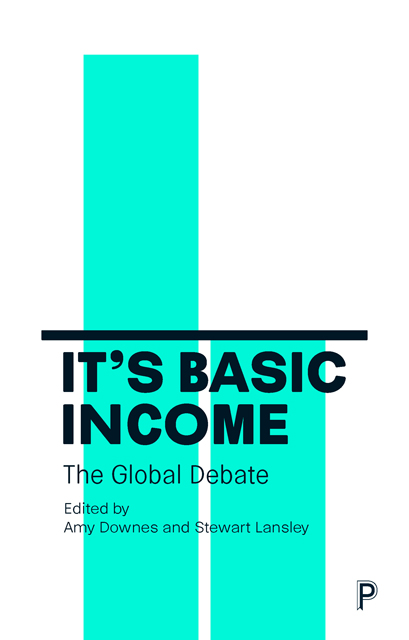9 - Coming off the fence on universal basic income
Published online by Cambridge University Press: 11 April 2023
Summary
‘… for all my ambivalence, I am coming round to the idea of a UBI as a means of ensuring everyone a modicum of basic security in an increasingly insecure world.’
I’ve always sat on the fence when it comes to universal basic income (UBI). There’s much that is attractive in an approach that, in its pure form, does away with means-testing and contribution tests to guarantee every individual a basic income in their own right. I’ve thus also always welcomed the debate about basic principles that proposals for a UBI encourage while not actually signing up to any of those proposals.
In part my reluctance to sign up in support has reflected an ambivalence around the total absence of any conditions attached to entitlement. On the one hand this absence represents the absolute guarantee of security that is so attractive and it challenges the contemporary fetishisation of paid work as the citizenship responsibility. It leaves it to individuals to decide how they divide up their time between paid work, caring, community and citizenship-focused activities, education, creativity, family and friends, leisure pursuits or just being, without being dictated to by an intrusive state. On the other hand, as Nick Srnicek and Alex Williams warn in Inventing the Future, the work ethic is deeply ingrained into our identities. Even for someone such as myself, critical of the fetishisation of paid work, it’s not so easy simply to shrug it off. When Srnicek and Willams call for ‘the right to be lazy’, I find myself recoiling at the idea that other people should be required to subsidise that right. That doesn’t mean I believe many would necessarily exercise it as, on the one hand, there are many reasons why people would nevertheless still want to undertake paid work and, on the other, even those who don’t may be busy in other ways.
Nevertheless, such fears are why I have found the idea of a ‘participation income’ a potentially attractive compromise. Put forward by the Commission on Social Justice, published in 1994, and, more recently, the late Tony Atkinson, it would allow for a more inclusive form of conditionality, based on making a social contribution, than do the rules currently governing entitlement to social security.
- Type
- Chapter
- Information
- It's Basic IncomeThe Global Debate, pp. 54 - 57Publisher: Bristol University PressPrint publication year: 2018
- 1
- Cited by



